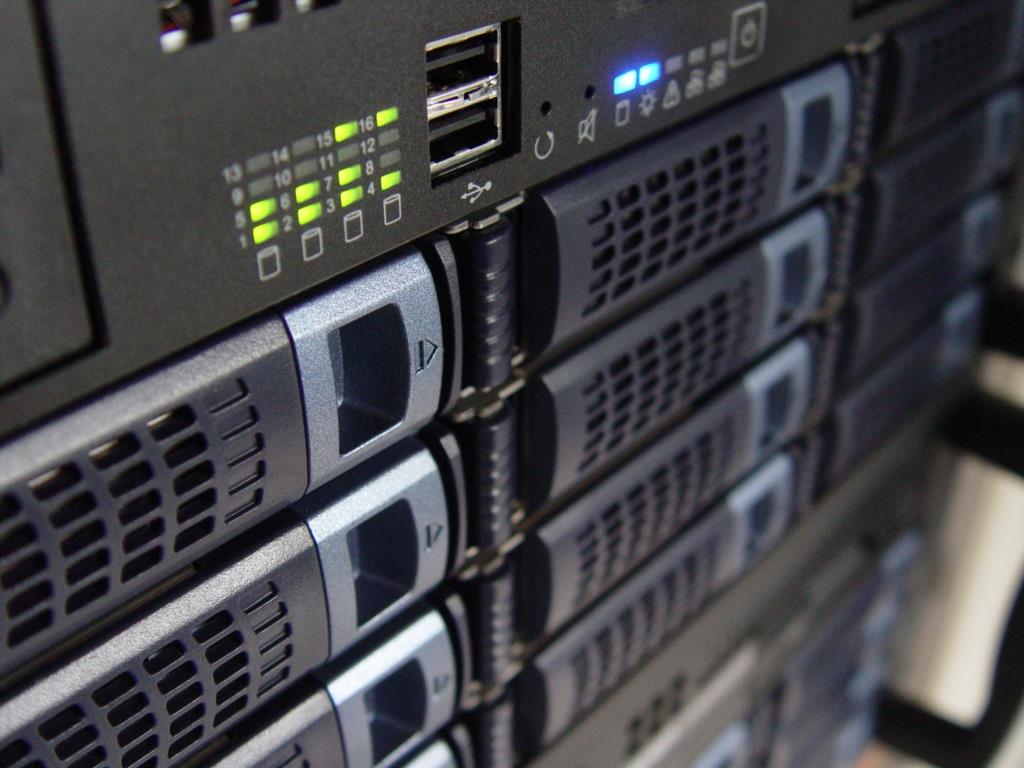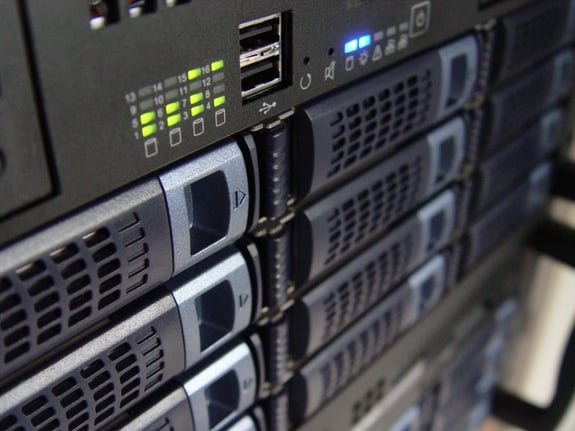Over the years, and even today, uncertainty about “servers” commonly comes up when a city first approaches us for help. While servers usually aren’t used day-to-day by a typical city employee, it’s not uncommon for city managers, city clerks, police chiefs, and department heads to deal with servers and understand enough about them to run their operations. However, many city employees may not understand exactly what a server does, what it is, and how it’s different than an individual’s computer.
It’s probably more confusing when some IT people start telling them, “A server IS a computer, but…” Okay. It is a computer, but it’s completely different than a computer. Then what is it?
In this post, we define a server—a specialized computer—by what it does and how it’s different than a desktop or laptop computer used by an individual.

1. A server is a special, dedicated computer with the sole purpose of running important software and applications.
Your desktop computer isn’t created to host something like an accounting database for multiple city employees to access in an efficient, fast manner 24/7. Servers are built to perform, perform, perform. That’s why they are used to run complicated software and applications that run your computer network, deliver your email, and give employees access to accounting and financial software. Servers are incredibly powerful computers primarily meant to run important applications. They are not the kind of computer that an individual would use for individual tasks. Instead, servers usually sit in a designated room or a data center in a remote location where they are overseen and managed by IT professionals.
2. A server is designed to support many city employees.
Without a server, each city employee would have to install software on their computer. That’s not efficient at all. Even at home, you probably don’t access most of your favorite applications from software you installed on your computer. Instead, you access data and applications over the internet from…somewhere. That “somewhere” is a server or servers. Servers host applications so that employees can all access the software from their individual computers. That way, you can install the software or application once on a server and then deploy it to individual computers instead of installing software on each computer—a time-consuming, inefficient, hard-to-manage process.
3. A server provides a centralized storage location for data, files, and documents.
One common problem that cities experience is when data, files, and documents are spread across many employee computers—with no centralized place to access that information. Servers solve that problem. As a few examples:
- A document management system on a server will store city documents and records in a centralized place. Any employee with authorization can then access these documents from their computers.
- Accounting software on a server will contain one database accessible by authorized employees and eliminate the need for employees to store critical data on their own computers.
- Email software on a server will contain one place where all email is stored and managed. Employees will not need to install email software or worry about email storage on their own computers.
4. A server allows for centralized control of IT security and administration.
Do you trust city employees to secure their individual computers? As wonderful as these employees are, they are not IT professionals. That’s why software patching often lapses on individual computers. Instead, servers are the place where security software and tools can be centralized, managed, pushed out to all users, and overseen by IT professionals.
Also, servers allow for centralized administration. For example:
- A server offers user access and permission tools that restrict unauthorized users from accessing data. When employees are terminated, you can easily remove them as users at the server level. When you wish to restrict or remove user access for a particular employee or vendor, you can do so easily at the server level.
- A server allows IT professionals to push software patches and updates out to individual computers—a critical task for preventing cyberattacks. Knowing that you don’t have to depend on each computer user to patch and upgrade software is a great sigh of relief.
- A server allows IT professionals to monitor network traffic, application performance, and endpoints for red flags, future problems, and anomalies. Often, cyberattacks, server failures, and software issues can be detected before the worst happens. Servers collect information about all employee computers for easy monitoring.
Whether your servers are at your city, in a data center, or in the cloud, they are the specialized computers that help run your most important applications and software. If you need help managing your servers or exploring server options that work best for your applications, reach out to us today.
Original Date: 11/6/2019


